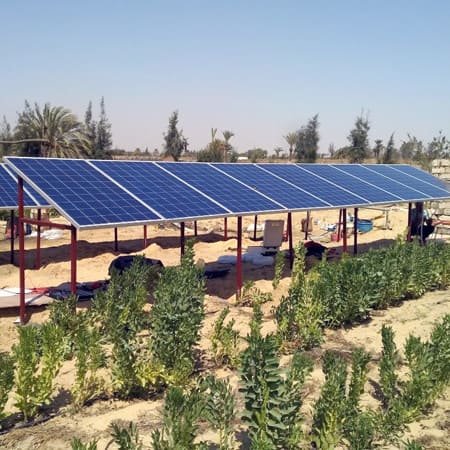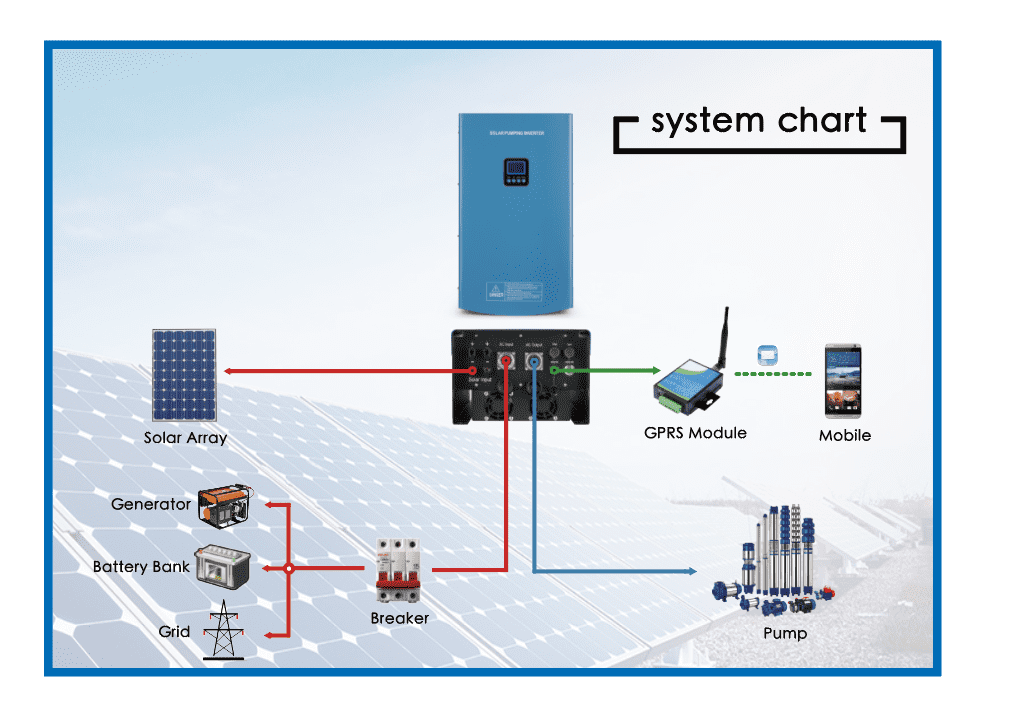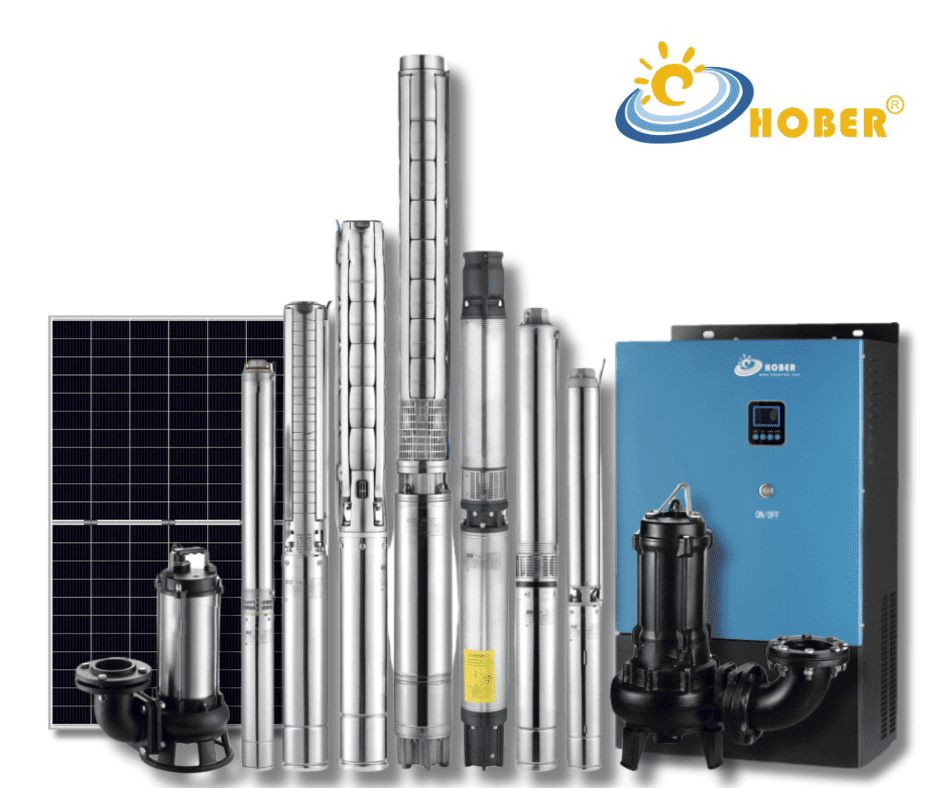Introduction
As Africa experiences rapid population growth and increased demand for water, traditional energy sources have proven insufficient in rural areas where electricity is scarce. Hober Solar water pump inverters have emerged as a sustainable and cost-effective solution for addressing water supply challenges. By converting solar energy into the necessary power for water pumps, these inverters ensure a consistent water supply while minimizing environmental impact. This article explores the benefits, features, and installation process of solar water pump inverters, particularly designed for the African market.
What Is a Solar Water Pump Inverter?

A solar water pump inverter is a device that converts direct current (DC) from solar panels into alternating current (AC) needed by water pumps to function. It plays a critical role in solar water pumping systems, which are increasingly used across Africa for agricultural irrigation, drinking water supply, and livestock watering.
These systems are highly efficient and sustainable, as they harness the abundant sunlight available in many African regions, reducing reliance on costly and often unreliable electricity grids or diesel generators. Solar water pump inverters can be used with both surface pumps and submersible pumps, making them versatile for various applications in different terrains across Africa.
Why Solar Water Pump Inverters Are Ideal for Africa

1. Abundant Sunlight
Africa, especially countries within the Sub-Saharan region, enjoys an abundance of sunlight year-round. Solar water pump systems leverage this natural resource to provide reliable water access, making them particularly well-suited to the region.
2. Cost-Effective Solution
Once installed, solar-powered systems have very low operational costs compared to traditional water pumping methods that rely on diesel generators or electric grids. This makes solar water pump inverters a more economical long-term solution for farmers and rural communities, especially in remote areas.
3. Eco-Friendly and Sustainable
Solar water pump inverters help reduce carbon emissions by utilizing clean, renewable energy. This is a major advantage in Africa, where environmental degradation and energy access are significant concerns.
4. Low Maintenance
Solar water pumping systems, when installed properly, require minimal maintenance. They are designed to last for many years with minimal intervention, making them ideal for rural African communities that may lack easy access to technical services.
Key Features of Hober Solar Water Pump Inverters for African Markets

1. Fully Automated Intelligent Design
Solar pump inverters used in African markets are equipped with fully automated intelligent designs, meaning no programming is required, making them easy to install and use. This plug-and-play design makes it accessible for technicians and local users, ensuring faster setup and minimal complications.
2. 24/7 Unattended Operation with Human-Machine Interface (HMI)
These inverters are designed for 24/7 unattended operation and come with a human-machine interface (HMI). The interface provides real-time display of system status and key parameters such as voltage, current, frequency, and power, allowing users to monitor the system easily.
3. Built-In Data Recording Module
Each solar water pump inverter includes a built-in data recording module, enabling the collection and retrieval of fault information and historical operating data. This feature simplifies troubleshooting and helps with preventive maintenance by offering insights into the system’s performance over time.
4. Remote Communication and Monitoring
The inverters come equipped with a remote communication function, allowing for the remote monitoring and control of the system. Users can check the system status, make adjustments to operating modes, and track performance from any location, making it ideal for use in remote or difficult-to-reach areas common in Africa.
5. IP65-Rated for Outdoor Use
Designed to withstand harsh environmental conditions, these inverters have an IP65 rating, meaning they are waterproof and dustproof. This makes them suitable for various application environments, whether in arid regions or near water sources. The low installation costs make it more accessible for local farmers and communities.
6. Wide Operating Temperature Range
Africa’s extreme temperatures require equipment that can withstand the heat. These solar water pump inverters are designed to operate in temperatures as high as 60°C, ensuring reliable performance even in the hottest regions.
7. Comprehensive Protection Mechanisms
Solar pump inverters feature comprehensive protection mechanisms that safeguard the system from electrical surges, overloading, and overheating. These protections not only ensure stable operation but also extend the overall lifespan of the system, reducing long-term costs.
Applications of Solar Water Pump Inverters in Africa

1. Agricultural Irrigation
In many parts of Africa, agriculture is the backbone of the economy. Solar water pump inverters are used extensively for irrigation, allowing farmers to water their crops efficiently, even in off-grid areas. These systems reduce reliance on rain-fed agriculture, improving crop yields and food security.
2. Drinking Water Supply
Providing clean drinking water in rural African communities is often a challenge due to a lack of infrastructure. Solar-powered water pumps can draw water from deep wells or nearby rivers, providing a steady supply of potable water.
3. Livestock Watering
For communities that rely on livestock, ensuring animals have access to water is crucial. Solar water pump systems can be used to pump water for livestock from rivers, lakes, or underground wells, especially in arid regions where water is scarce.
How to Install a Solar Water Pump Inverter in Africa

1. Site Selection
Choose a location with maximum exposure to sunlight. Ensure the area is free from shadows throughout the day, as shading can significantly reduce the efficiency of solar panels.
2. Solar Panel Setup
Install the solar panels on a sturdy structure, angled to capture the most sunlight. The panels should be securely mounted to withstand high winds and weather conditions common in Africa.
3. Wiring and Connections
Connect the solar panels to the inverter using durable wiring designed for outdoor use. It’s important to ensure that the connections are secure and that the inverter is protected from water and excessive heat.
4. Inverter Installation
Place the solar pump inverter in a well-ventilated area to prevent overheating. The inverter should be grounded properly to avoid electrical faults. The HMI and remote monitoring features make setup and monitoring easy, even in off-grid locations.
5. Testing the System
Once installed, test the entire system by running the pump. Check the water flow and make sure the solar pump inverter is converting solar energy efficiently. Regular maintenance and monitoring will ensure the system operates smoothly for years to come.
Maintenance and Safety Tips
- Regular Panel Cleaning: Dust and debris can accumulate on solar panels, reducing their efficiency. It’s important to clean them regularly, especially in dusty regions.
- Check Wiring and Connections: Periodically inspect all wiring and connections to ensure there are no loose or damaged components that could lead to power loss.
- Surge Protection: Install surge protectors to safeguard the system from potential damage caused by electrical surges, especially during thunderstorms.
- Monitor Water Pump Performance: Regularly check the performance of the water pump to detect any issues early, ensuring consistent water supply.
Conclusion
Solar water pump inverters are revolutionizing water access across Africa by providing a sustainable and cost-effective solution for agricultural, drinking water, and livestock needs. Their adaptability to different environments, coupled with intelligent automated features, remote monitoring capabilities, and comprehensive protection mechanisms, makes them an ideal choice for the African market.
As Africa continues to embrace renewable energy solutions, solar water pump inverters will play a key role in improving water access for millions of people. By following proper installation procedures and regular maintenance practices, these systems can provide long-term, reliable water solutions for communities across the continent.

